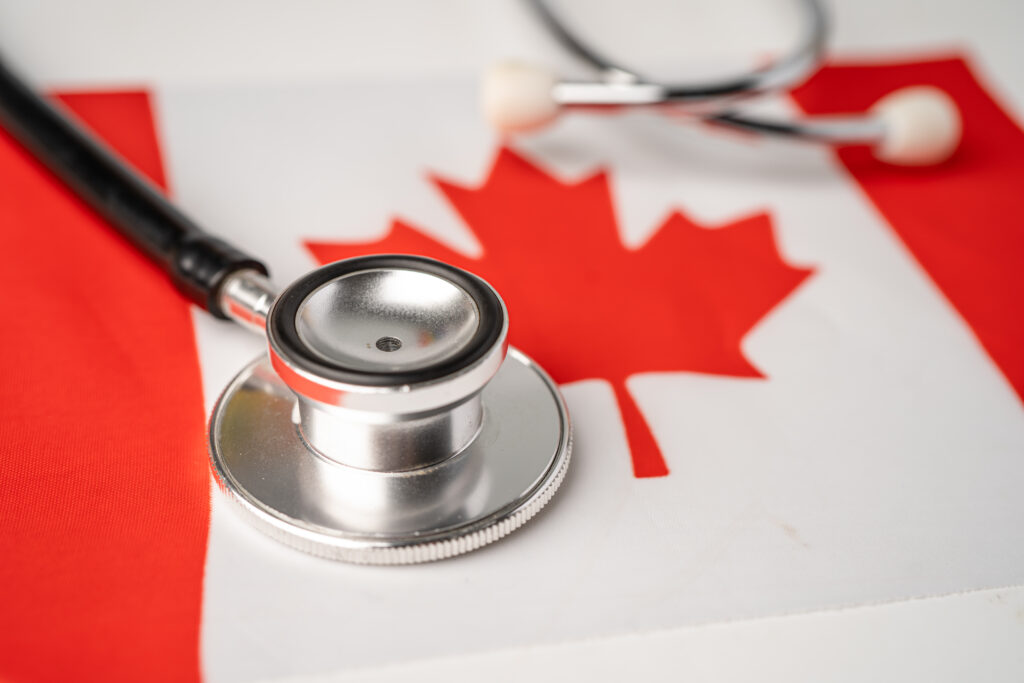If you’re a non-resident in Canada, navigating the healthcare system can be daunting, especially when it comes to understanding the costs involved. While Canada is known for its universal health care system, it’s important to note that not all health care services are covered for non-residents.
The costs can vary depending on the type of service needed and the province you’re in. In this article, we’ll break down the different types of healthcare services you may require as a non-resident, the associated costs, and how to prepare for unexpected medical expenses.
By understanding the costs of health care in Canada for non-residents, you can make informed decisions about your health and well-being while you’re in the country. So, let’s dive in and explore what you need to know!
Understanding the Healthcare System in Canada

Canada’s healthcare system is decentralized, with each province and territory responsible for its healthcare services. This means that the types of services covered, the costs involved, and the eligibility requirements can vary depending on where you are in the country.
To navigate the healthcare system in Canada, it’s important to understand how it works and your options. This may involve researching the healthcare services available in the
province you’re visiting, finding a doctor or clinic that can provide the services you need, and understanding the costs and payment options involved.
Who Qualifies for Healthcare Coverage in Canada?

Canada’s universal health care system, also known as Medicare, is available to Canadian citizens and permanent residents.
Visitors to Canada, including non-residents, are not covered under Medicare and must pay for their own medical services. However, some provinces and territories offer limited coverage for emergency medical services for visitors, while others do not.
It’s important to check with the province you’re visiting to understand what services are covered and what costs you may be responsible for.
Costs of Healthcare for Non-Residents
The costs of health care services for non-residents in Canada can vary widely, depending on the type of service needed and the province you’re in. For example, a visit to a walk-in clinic for a minor illness may cost around $50 to $100, while a visit to an emergency room for a more serious condition can cost hundreds or even thousands of dollars.
In addition to these costs, non-residents may also be responsible for laboratory and diagnostic tests, prescription medications, and other medical expenses.
It’s important to note that these costs can add up quickly, especially if you require ongoing medical care or treatment. To avoid unexpected medical bills, purchasing medical insurance before you travel to Canada is a good idea. This can help cover the costs of medical services, including emergency care, hospitalization, and prescription medications.
Alternative Healthcare Coverage for Non-residents

While traditional health care coverage may be the best option for some non-residents, there are other alternatives to consider as well. For example, some non-residents may be eligible for coverage under a travel insurance policy or a private health insurance plan.
In addition, some non-residents may be able to access medical services through a community health center or a charitable organization. These services may be available at a reduced cost or for free, depending on the organization and the services provided.
Medical Emergencies and Travel Insurance
Medical emergencies can happen anytime and can be especially stressful when you’re in a foreign country. That’s why it’s important to have travel insurance that includes medical coverage. As mentioned above, this is also something that can be used even for non-residents.
Travel insurance can help cover the costs of emergency medical services, hospitalization, and other expenses related to a medical emergency.
When purchasing travel insurance for Canada, it’s important to read the policy carefully and understand what is covered and what is not. Some policies may exclude coverage for pre-existing conditions or certain types of medical treatments. It’s also important to ensure that the policy provides adequate coverage for the duration of your stay in Canada.
Tips for Managing Healthcare Costs While in Canada

Here are steps you can take to help keep your healthcare costs under control when staying as a non-resident in Canada. Here are a few tips to keep in mind:
- Purchase travel insurance before you travel to Canada to help cover the costs of medical services.
- Research the health care services available in the province you’re visiting, and understand the costs involved.
- Consider alternative options for medical services, such as community health centers or charitable organizations.
- Keep all receipts and documentation related to medical expenses, as these may be needed for reimbursement or insurance claims.
- Be proactive about your health and well-being, and seek medical attention as soon as you notice any symptoms or health concerns.
Resources for Non-residents Seeking Healthcare in Canada
Navigating the health care system in Canada can be challenging, especially for non-residents. Fortunately, there are resources available to help. Here are a few to consider:
- The Canadian government’s website provides information on health care services in each province and territory.
- The Travel Health Insurance Association of Canada offers resources and information on travel insurance for non-residents.
- The Canadian Snowbird Association provides resources and information for Canadians who travel to the United States and other countries for extended periods of time.
Common Misconceptions About Healthcare Costs in Canada
There are many misconceptions about health care costs in Canada, especially for non-residents. Here are a few myths to be aware of:
Myth #1.
Non-residents can access all healthcare services for free. In reality, non-residents are responsible for paying for their own medical services, and not all services are covered.
Myth #2.
Healthcare services are the same across all provinces and territories. In reality, the types of services covered, the costs involved, and the eligibility requirements can vary depending on where you are in the country.
Myth #3:
Health care is always affordable in Canada. In reality, the costs of health care services can add up quickly, especially for non-residents who require ongoing medical care or treatment.
Conclusion
Navigating the health care system in Canada can be challenging, especially for non-residents. However, by understanding the costs of health care services, preparing for unexpected medical expenses, and being proactive about your health and well-being, you can make informed decisions and ensure that you receive the care you need while you’re in the country.
Remember to purchase travel insurance, research the health care services available in the province you’re visiting, and consider alternative options for medical services. With a little planning and preparation, you can enjoy your time in Canada with peace of mind knowing that you’re covered in case of a medical emergency.
Let us stay connected in our social media accounts for more healthcare discourse. Follow us on LinkedIn, Instagram, Twitter, Pinterest, and TikTok,now!
HosTalky is a healthcare helper app! Get your hands on this new application today and download it here on the Google Play Store and Apple App Store.
Get the latest updates on healthcare trends, news, and AI in healthcare. Follow us on LinkedIn and Instagram for more!